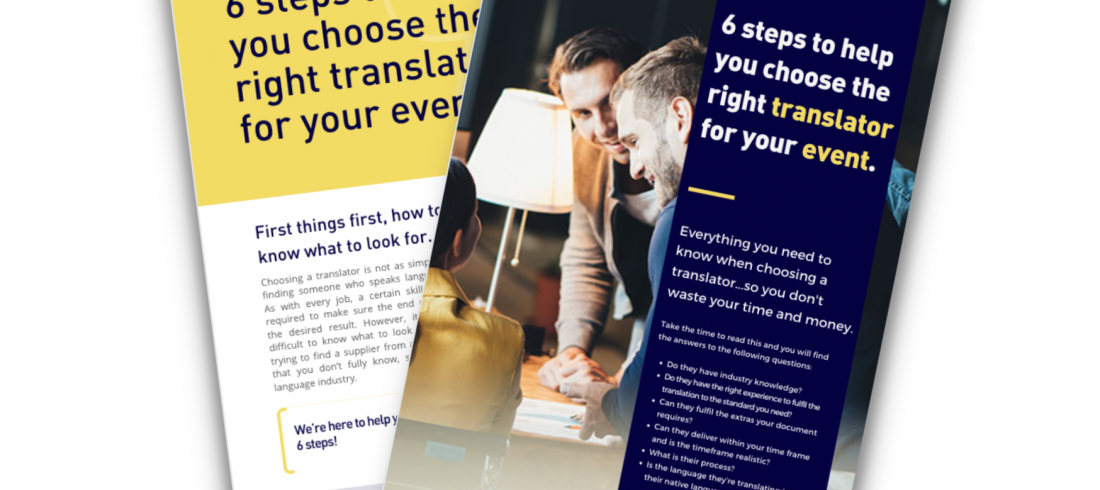Almost every language has been influenced by another. Languages are constantly evolving, each with their own unique cultural markers. Language specialists, such as translators, help us to understand these markers.
Translation services help to break down language barriers. As a company that offers translation services, we know how important professional translators are.
We collated 3 interesting facts for you about translations and translators.
In this blog:
- Translators’ working languages
- Translators specialise
- The difference between ‘translator’ and ‘interpreter’
1- Translators mainly translate into their native language
Imagine a menu in a Michelin-starred restaurant. When you read through each dish, the descriptions make your mouth water, leaving you undecided as to what you want to eat, so maybe you just order it all.
Now imagine a menu in a local caf when you’re abroad on holiday. You don’t speak the local language and they’ve got an English menu. Winner! But then you start to read it and have no idea what’s on offer because the owner’s cousin who studied GCSE English translated it. Not so great (but bravo to the cousin for taking the time to learn another language). You may squint at the menu for a bit and then order what you understand. If you can be bothered you ask for more info. Or you just move on as ordering is too much like hard work.
A translator needs to have intimate knowledge of the language they are translating into. For this reason, the best translations will be those produced by native speakers. Words are meant to make you feel something, take action, and inform. The writer needs to be able to use nuance, tone and idioms, to name just a few things, to make sure they get the balance right and create a sharp text fitting the client’s brief. There’s a difference between a chocolate fondant, full of chocolatey, oozy goodness and a chocolate fondant.
2- Translators specialise in particular sectors, so they are experts in that particular field e.g., Health & Safety, medical or legal
Have you ever interviewed someone, asked them a question relating to the role and when they’ve answered you can tell they have no idea what you or they are talking about? How can you tell? Most of the time it’s because they just don’t talk about it in the right way: they don’t use the right vocabulary for the industry, can’t explain the process properly. This is why translators specialise. They can speak about their chosen sector with confidence, knowing someone from the industry will know exactly what they’re talking about. You can’t be an expert in everything can you? Would you trust a surgeon to operate on you who also works as a lawyer and a fisherman? Translators are continuously honing their skills, from reading up on the subject to immersing themselves in their chosen field, to ensure they know that ‘shell’ goes with ‘scheme’ or ‘data’ with ‘scanner’.
3- There is a difference between ‘translator’ and ‘interpreter’
Yup, they’re not the same. An interpreter deals with the spoken word, so translates orally. They’re those impressive people you see at conferences switching from one language to another, in the blink of an eye, like it’s nothing. A translator deals with the written word, not the spoken word.
TranslateAble is here to help! We can provide translations in all major languages and more. For more information please contact TranslateAble at info@translateable.com.





